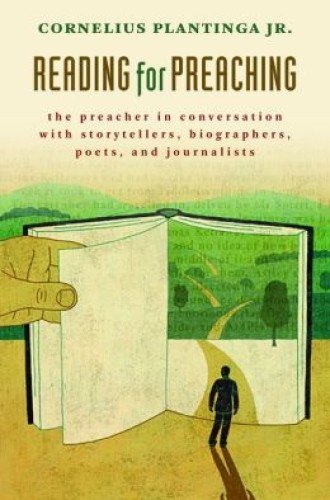Reading for Preaching, by Cornelius Plantinga Jr.
Karl Barth encouraged preachers to prepare their sermons with the Bible in one hand and the newspaper in the other. This is good advice, but Cornelius Plantinga Jr., the former president of Calvin Theological Seminary, contends that to be fully prepared to share a word from God with a congregation, a preacher should also attend to storytellers, biographers, poets and journalists, who also “write about sin and grace, bondage and redemption, sorrow and joy, and the hunger for justice.”
Plantinga is a believer in pursuing an intentional program of general reading. He has co-led annual monthlong seminars titled “Reading for Preaching,” which, together with his 2012 Warfield Lectures of the same title at Princeton Theological Seminary, provide the foundation for this brief but challenging book, in which Plantinga shares the homiletical and personal benefits of such a reading program.
Plantinga affirms the premise that the preaching task begins with the biblical text—to which the preacher owes primary allegiance. He does not intend to distract readers from the Bible or from the great works of biblical and theological scholarship. General reading, however, can enrich the life and preaching of the minister, as well as provide a rich trove of illustrative material that can be used in sermons.






